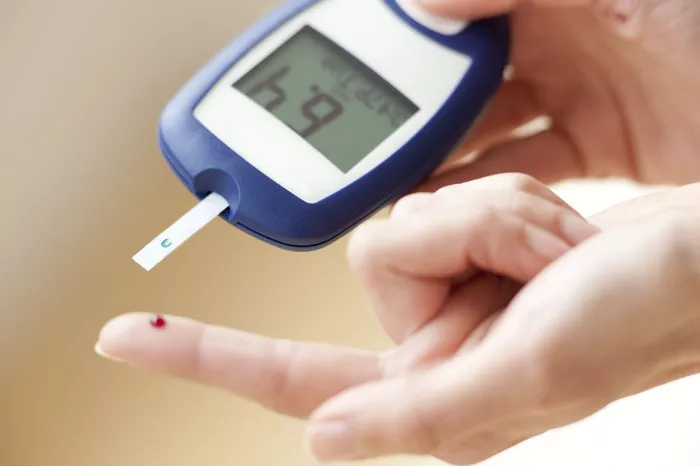Hypoglycemia, or low blood glucose levels, is a condition often associated with diabetes management, but it can also occur in individuals without diabetes. Recurrent episodes of hypoglycemia can be alarming and significantly impact the quality of life. Understanding why hypoglycemia happens and how to manage it is crucial for those affected. This comprehensive article explores the various causes, risks, and strategies for managing persistent hypoglycemia.
What is Hypoglycemia?
Hypoglycemia is defined as a blood glucose level below 70 mg/dL (3.9 mmol/L). Symptoms of hypoglycemia can range from mild to severe and include shakiness, sweating, confusion, irritability, rapid heartbeat, and, in extreme cases, seizures or unconsciousness. It is essential for individuals, especially those with diabetes, to recognize these symptoms early to prevent more severe complications.
Causes of Hypoglycemia
Hypoglycemia can be caused by various factors, broadly categorized into those related to diabetes management and those unrelated to diabetes.
Diabetes-Related Causes
- Insulin or Oral Hypoglycemic Agents: The most common cause of hypoglycemia in people with diabetes is the use of insulin or oral hypoglycemic agents like sulfonylureas. These medications lower blood glucose levels, and improper dosing can lead to hypoglycemia.
- Delayed or Missed Meals: Skipping meals or eating later than usual can result in low blood sugar, especially in those taking insulin or medications that increase insulin secretion.
- Increased Physical Activity: Exercise can lower blood glucose levels, sometimes leading to hypoglycemia, particularly if the exercise is unplanned or more intense than usual without appropriate adjustments in food intake or medication.
- Alcohol Consumption: Alcohol can cause hypoglycemia by interfering with the liver’s ability to release glucose into the bloodstream. This effect can be more pronounced when alcohol is consumed on an empty stomach or in large amounts.
- Insulin Absorption Variability: Factors such as injection site, skin temperature, and exercise can affect how quickly insulin is absorbed into the bloodstream, leading to unpredictable blood glucose levels.
Non-Diabetes-Related Causes
- Endocrine Disorders: Conditions like Addison’s disease or growth hormone deficiency can impair glucose production and lead to hypoglycemia.
- Severe Illnesses: Critical illnesses such as severe infections, liver disease, or kidney failure can disrupt glucose metabolism and cause hypoglycemia.
- Hormonal Imbalances: Tumors that produce excessive insulin (insulinomas) or other hormonal imbalances can lead to frequent hypoglycemic episodes.
- Genetic Disorders: Rare genetic conditions, such as congenital hyperinsulinism or glycogen storage diseases, can cause persistent hypoglycemia.
- Postprandial Hypoglycemia: Also known as reactive hypoglycemia, this occurs after meals, often due to an exaggerated insulin response following a high-carbohydrate meal.
Identifying Hypoglycemia
Accurate identification of hypoglycemia is crucial for effective management. This involves:
- Monitoring Blood Glucose Levels: Regular monitoring using a glucose meter is essential, especially for individuals with diabetes. Continuous glucose monitors (CGMs) can provide real-time data and alert users to impending hypoglycemia.
- Recognizing Symptoms: Awareness of hypoglycemia symptoms enables prompt action. Education on symptom recognition should be an integral part of diabetes management.
- Evaluating Patterns: Keeping a detailed log of blood glucose readings, medication doses, food intake, and physical activity can help identify patterns and triggers of hypoglycemia.
Risks Associated with Frequent Hypoglycemia
Repeated episodes of hypoglycemia can lead to several complications, including:
- Hypoglycemia Unawareness: Frequent hypoglycemia can blunt the body’s natural warning signs, making it harder to recognize low blood sugar levels. This increases the risk of severe hypoglycemia.
- Cardiovascular Risks: Hypoglycemia can cause cardiovascular stress, increasing the risk of arrhythmias and other cardiac events.
- Cognitive Impairment: Both short-term and long-term cognitive function can be affected by recurrent hypoglycemia, potentially impacting memory and executive functioning.
- Quality of Life: The fear of hypoglycemia can lead to anxiety, reduced physical activity, and social limitations, significantly affecting overall well-being.
Managing Persistent Hypoglycemia
Effective management of hypoglycemia involves a multifaceted approach, including medical, dietary, and lifestyle interventions.
Medical Management
- Medication Adjustment: For individuals with diabetes, adjusting the dosage and timing of insulin or oral hypoglycemic agents is crucial. This should be done in consultation with a healthcare provider.
- Alternative Medications: In some cases, switchingto medications with a lower risk of hypoglycemia, such as DPP-4 inhibitors, GLP-1 receptor agonists, or SGLT2 inhibitors, may be appropriate.
- Use of Technology: CGMs and insulin pumps with automated insulin delivery systems can help maintain more stable blood glucose levels and reduce the risk of hypoglycemia.
- Glucagon Kits: Having a glucagon emergency kit available is vital for severe hypoglycemia. Educating family members and close contacts on how to use it is also essential.
Dietary Strategies
- Regular Meals and Snacks: Consistent eating patterns with balanced meals and snacks can help maintain stable blood glucose levels. Including complex carbohydrates, protein, and healthy fats in meals can prevent rapid glucose fluctuations.
- Carbohydrate Counting: For individuals with diabetes, carbohydrate counting can help match insulin doses more accurately with food intake, reducing the risk of hypoglycemia.
- Avoiding High Glycemic Index Foods: Foods that cause rapid spikes in blood glucose levels can lead to subsequent drops, increasing the risk of reactive hypoglycemia. Opting for low glycemic index foods can mitigate this risk.
- Alcohol Moderation: Limiting alcohol intake and never drinking on an empty stomach can help prevent alcohol-induced hypoglycemia.
Lifestyle Modifications
- Exercise Planning: Monitoring blood glucose levels before, during, and after exercise, and adjusting food intake or medication as needed, can help manage exercise-induced hypoglycemia.
- Stress Management: Chronic stress can affect blood glucose levels. Techniques such as mindfulness, yoga, and other stress-relief practices can be beneficial.
- Adequate Sleep: Poor sleep can negatively impact glucose metabolism. Ensuring adequate, high-quality sleep is important for overall health and blood glucose control.
Monitoring and Follow-Up
Regular follow-up with healthcare providers is essential for those experiencing frequent hypoglycemia. This allows for:
- Continuous Evaluation: Regular assessments to adjust treatment plans as needed based on changes in symptoms, lifestyle, and health status.
- Education and Support: Ongoing education about hypoglycemia management and access to support groups can provide valuable resources and emotional support.
- Advanced Testing: In some cases, further testing such as mixed-meal tolerance tests, insulin assays, or imaging studies may be necessary to diagnose underlying conditions contributing to hypoglycemia.
Hypoglycemia and Special Populations
Certain populations require special consideration when managing hypoglycemia:
Children and Adolescents
Children and adolescents with diabetes are particularly vulnerable to hypoglycemia due to their varying insulin sensitivity and unpredictable activity levels. Careful monitoring, appropriate insulin dosing, and ensuring they have access to quick-acting carbohydrates are crucial.
Older Adults
Older adults may experience hypoglycemia more frequently due to comorbid conditions, polypharmacy, and age-related changes in glucose metabolism. Tailoring diabetes management to reduce the risk of hypoglycemia, such as using less aggressive glycemic targets, is often necessary.
Pregnant Women
Pregnant women with diabetes need to carefully manage blood glucose levels to avoid both hyperglycemia and hypoglycemia. Frequent monitoring and adjustments to the treatment plan are essential to maintain maternal and fetal health.
Conclusion
Persistent hypoglycemia is a complex and multifaceted condition that requires a thorough understanding of its causes and effective management strategies. For individuals with diabetes, careful monitoring of blood glucose levels, appropriate medication adjustments, and lifestyle modifications are key to preventing and managing hypoglycemia. For those without diabetes, identifying and treating underlying conditions is crucial. Regular follow-up with healthcare providers, continuous education, and support are essential components of managing hypoglycemia and improving overall quality of life.
Understanding the intricacies of hypoglycemia and taking proactive steps to manage it can empower individuals to lead healthier, more stable lives. Whether through medical management, dietary adjustments, or lifestyle modifications, addressing the root causes and mitigating the risks of hypoglycemia is essential for long-term health and well-being.
Related topics:


























